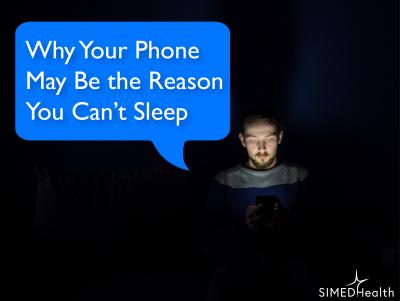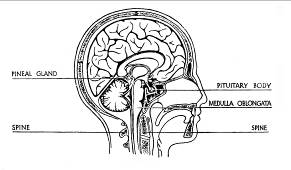
According to the National Sleep Foundation, at least 95 percent of people use some kind of electronic device — TV, a computer, a phone or a tablet — within an hour of bedtime.
Watching Netflix, checking emails or scrolling through social media before bed might seem harmless, and at times, necessary, however, it's the complete opposite. We spoke with Dr. Larissa Lim of SIMEDHealth’s Sleep Center to ask her a few questions about screen time and the importance of sleep.
Why is sleep so important?
“Sleep is what allows our bodies to rest and recuperate from the day. When we sleep we dream and process all the information we’ve received throughout the day,” she said.
Not getting enough sleep can mean decreased attention, slower processing speeds, general fatigue, and weight gain.
“People who are chronically sleep deprived are also more prone to depression and increased pain. If you get only 5 hours of sleep, you’ll feel it the next day,” Dr. Lim said.
Those of us who spend more time on screens before bed are more prone to these symptoms.
Why are screens bad for sleep?
The Pineal gland makes melatonin,  which is the main hormone that sets our circadian clock (our internal sleep timer). Blue light from screens is meant to mimic the sun. This suppresses melatonin production and tells our brains that it’s daytime, keeping us awake longer.
which is the main hormone that sets our circadian clock (our internal sleep timer). Blue light from screens is meant to mimic the sun. This suppresses melatonin production and tells our brains that it’s daytime, keeping us awake longer.
How to detox from screen time:
Dr. Lim says that breaking the habit of constantly using our phones is a hard but important habit to break.
“A lot of us are mindlessly picking up our phones all the time, constantly checking texts, emails, or Facebook. We need to limit ourselves,” she said.
Here are a few techniques you can use to decrease your screen time:
1. On the iPhone’s latest operating system update, there’s a feature called “Screen Time.” This allows you to see exactly how much time you spend on your phone and on specific apps. You can also set screen time limits and limit notifications on certain apps.
2. If you don’t have an iPhone, feel free to check out these free apps to monitor and limit your screen usage:
- BreakFree App
- Unglue
- AppDetox
- Moment
- bSocial
3. Dr. Lim says using “Night Mode” on your cell phone before bed, might decrease the risk of exposure to blue light.
“If it’s not blue light, it may be useful in improving sleep,” she said.
4. Avoid “phubbing”, or using our phones in social situations.
5. Dr. Lim’s top recommendation to limit screen time: Try turning off cellphone alerts during certain times of your day and give yourself a daily allowance of screen time.
If you find that it is not screen time that is keeping you from getting enough sleep, you may need to assess your sleep hygiene.
When should you see a doctor about sleep?
If you experience difficulty with falling or staying asleep for more than 3-6 months, or if lack of good sleep is beginning to affect your daily life, you should schedule an appointment with your provider, said Dr. Lim.
Sometimes the cause of your sleep concerns may be an underlying condition such as sleep apnea or seizures. This is why SIMEDHealth’s Sleep Center treats sleep disorders and evaluates multiple conditions. Dr. Lim goes on to express just how imperative it is that we limit phone use, for the sake of our sleep.
“We as a country are becoming addicted to smartphones. Each person needs to assess their phone use and minimize use before sleep.”